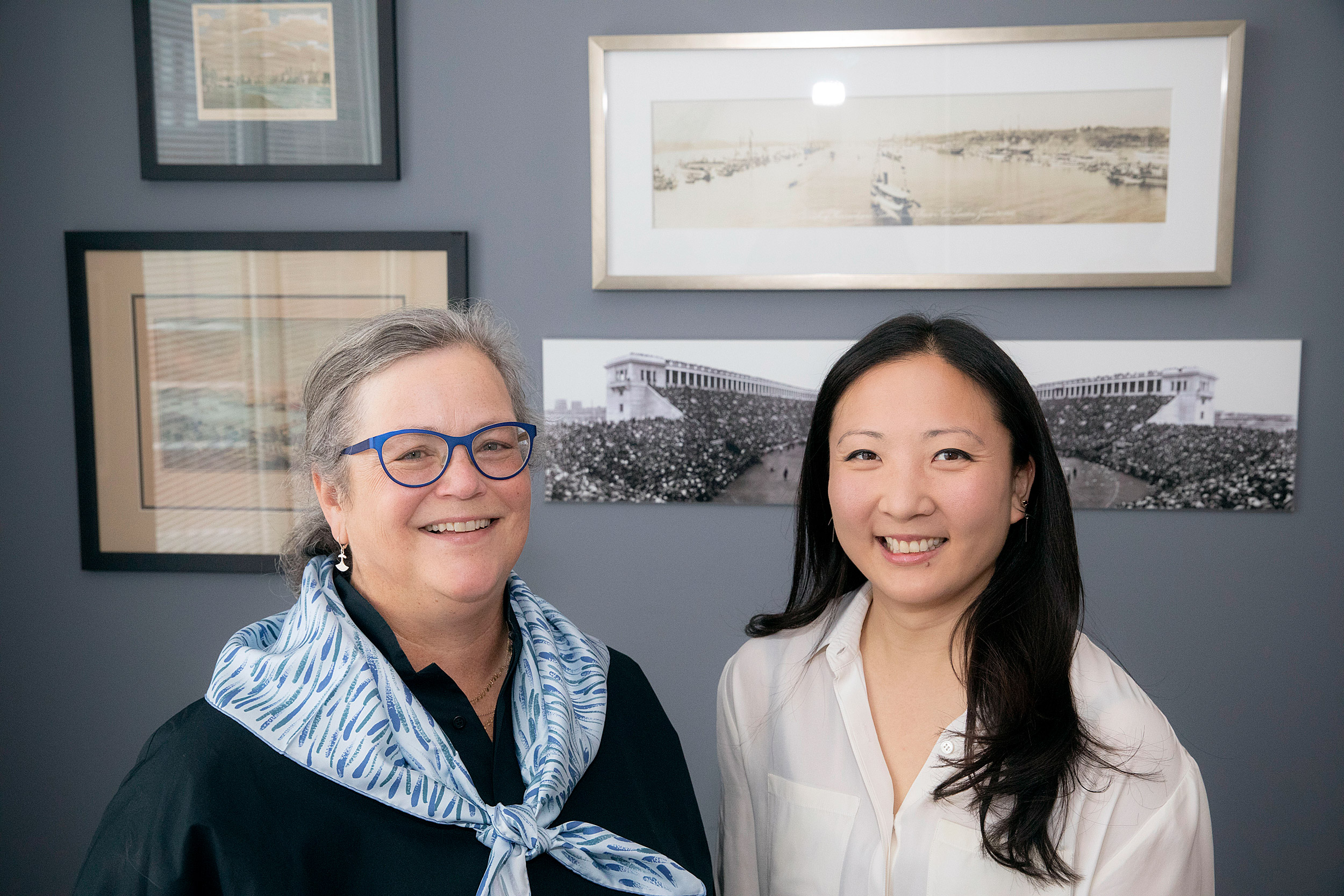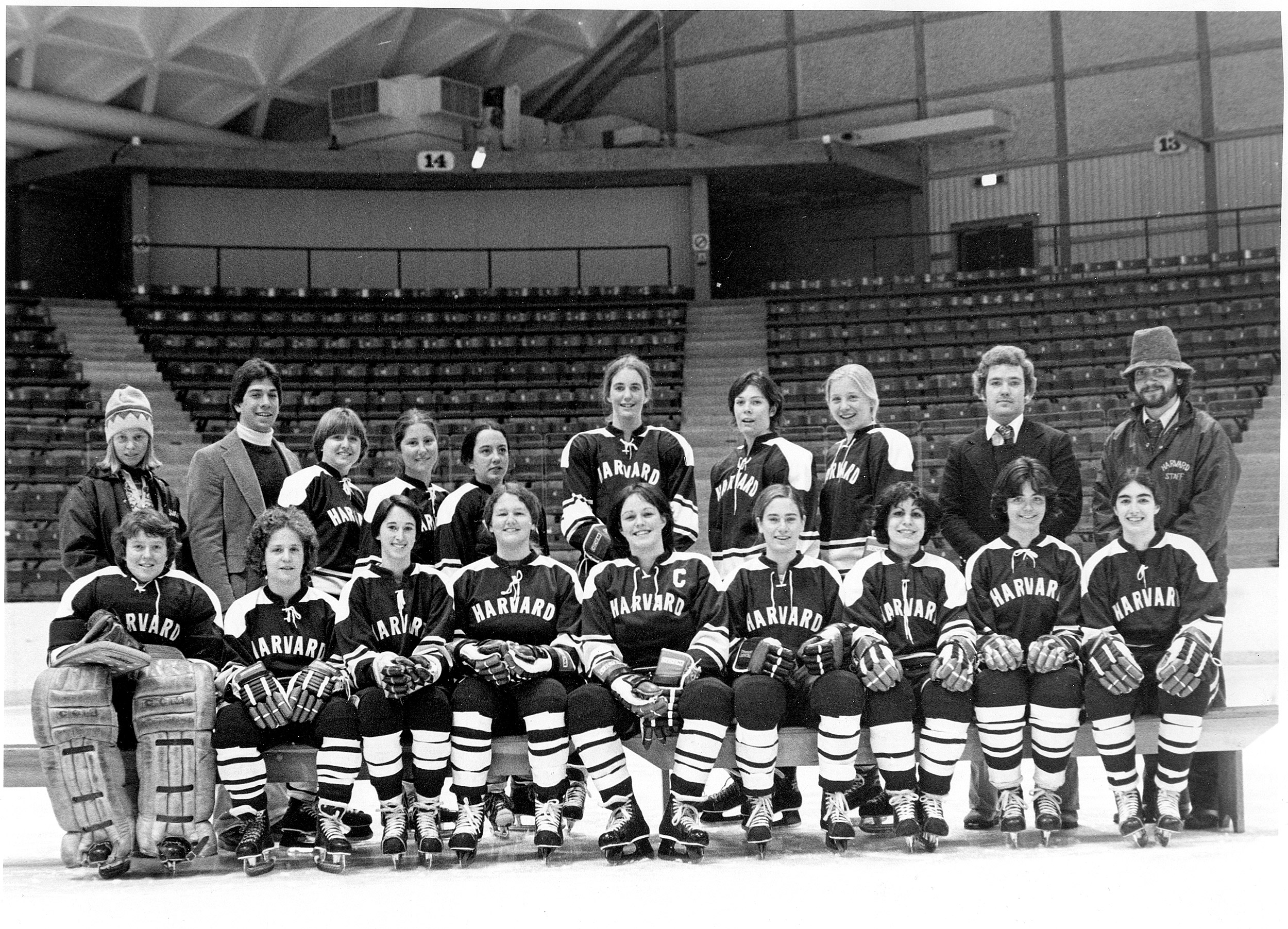
Alice Hill ’81, Ph.D. ’91, will succeed Margaret Wang ’09 as president of the Harvard Alumni Association for 2019–2020.
Kris Snibbe/Harvard Staff Photographer
Focusing on people and place
Incoming Alumni Association president seeks to deepen engagement with worldwide community of graduates
Meeting alumni where they are has been a priority for every Harvard Alumni Association (HAA) president since John Quincy Adams led the organization upon its founding in 1840. Today, with around 60,000 Harvard alumni living outside the United States, international travel is a big part of the job. For incoming president Alice Hill ’81, Ph.D. ’91, it’s just a fact of life.
Hill has made the 24-hour-plus trip from her home in Melbourne, Australia, to Cambridge four times each year since joining the HAA Executive Committee in 2015. But that’s a relatively quick jaunt compared to the two-day journeys she embarked upon every summer as a child, traveling from her small town of Inuvik inside the Arctic Circle in Canada’s Northwest Territories to visit family in Boston.
And her globe-trotting didn’t stop there. After graduating from Radcliffe College, where she studied economics and played on the inaugural women’s ice hockey team, Hill earned her master’s at the London School of Economics, went back to Canada to work for the federal government, and then returned to Harvard for her Ph.D. in business economics.
Wherever life has taken her, she has found ways to stay connected to the University, even from thousands of miles away.
“I love this community,” said Hill, who has been a member of Harvard Clubs in London, Ottawa, Washington, D.C., and Victoria (Australia). She has also served on the HAA board as director for Australasia, vice president for University-wide alumni affairs, and, currently, first vice president. “Harvard is a way to meet really interesting people, but more importantly, it’s a way to get really interesting and capable people working together to do things that we couldn’t do as individuals.”

Alice Hill (front row, second from right) scored the first-ever goal for the Harvard women’s ice hockey team in its inaugural season as a varsity sport in 1978–1979.
Photo courtesy of Harvard Athletics
One example of this collective action is the Harvard Club of Victoria fellowship program that Hill chairs, which sends local nonprofit leaders to Harvard Business School for a weeklong course on nonprofit management to learn strategies for addressing challenges in their communities.
Hill will be the first Australian and the first Canadian to lead the HAA, as well as the first from the Asia Pacific region. She plans to bring those perspectives to the table as president.
“I’m excited by what it says about the HAA to choose someone like me. It’s really walking the talk in terms of inclusion and engagement of international alumni. I want to make sure I honor that,” she said.
While Hill hopes to continue to deepen the HAA’s global outreach in the year ahead, she applauds the implementation of online voting in the Overseer and HAA director elections, which has made it easier for alumni abroad to participate. She also praised current HAA president Margaret Wang ’09 for leading by example in driving the board’s ongoing work on inclusion and belonging.
“I’m really happy to be following Margaret,” Hill said. “By putting herself out there and sharing her personal narrative, she has modeled the sorts of behavior that we aspire to.”
Throughout her presidency, Wang has encouraged alumni to bring their values and experiences to bear in their work for Harvard. The result, Wang said, is a community that has become more open to new ideas and more willing to broach difficult conversations.
“You have this intergenerational group of people from all over the world trying to engage with each other on things that are meaningful and sometimes challenging,” she said. “I’m seeing engagement across differences, and that makes me very optimistic.”
Hill is the right person to build on this momentum, Wang said.
“Alice lives the values that we talk about in terms of being your authentic self,” said Wang. “She’s uniquely positioned to continue opening up conversations with the alumni community around the world.”
In addition to seeking advice from former HAA presidents, Hill is drawing inspiration from Harvard President Larry Bacow’s statement that “Harvard is its people.”
“I also want to recognize how place shapes people — how Harvard is part of what makes us who we are,” Hill said. “If you’ve been a student here or you’ve worked here, you always belong to Harvard.”




